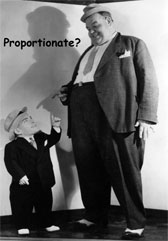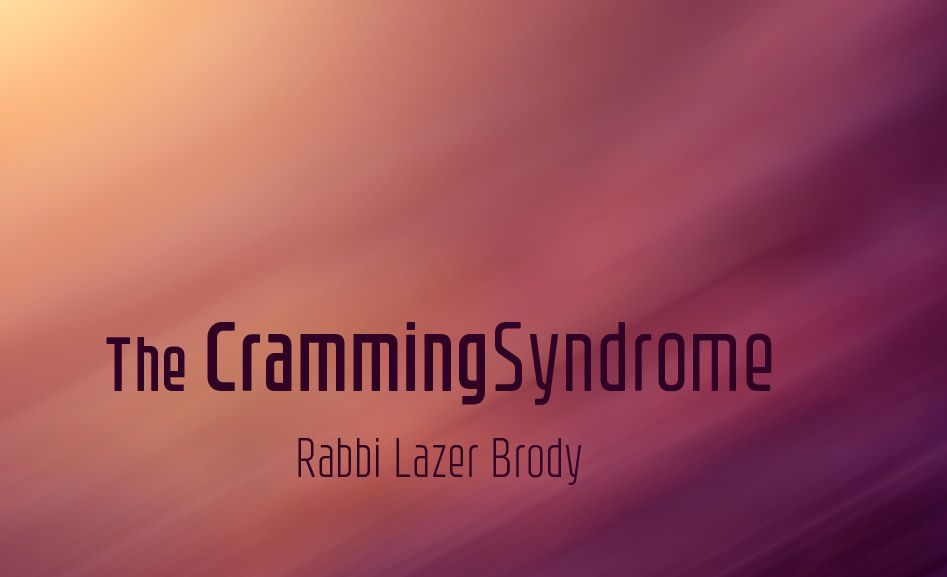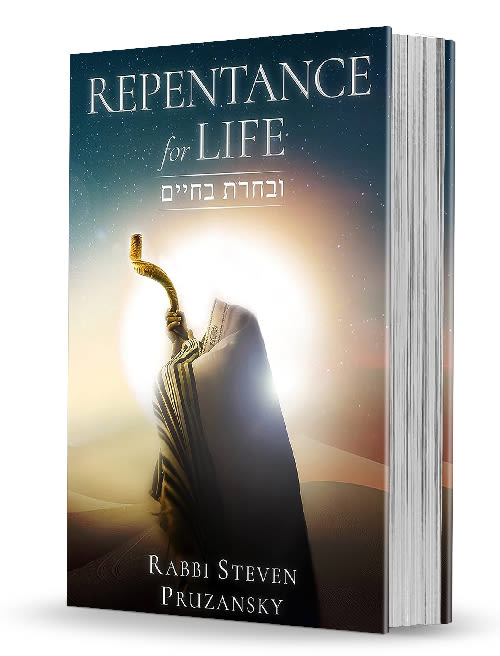
Pondering Proportionality
Our job in Elul is to stop making the same mistakes and to stop blaming Hashem for being unfair. Don't leave old spiritual debts unsettled...

How can anyone stomach the ugly hypocrisy of the United Nations Human Rights Council’s opinionated and prejudiced investigation of Israel for war crimes and disproportionate reaction? According to our principles of emuna, we know that Hashem does nothing without an express purpose and this of course is no exception. So why is Hashem doing this to us?
The answer is that we do it to ourselves. Hashem is only mirroring our actions and showing us how unsightly they are. Hashem does everything measure-for-measure, as our sages teach us countless times. This also is no exception. If we are being accused of disproportionate reactions, it means that we have accused Hashem of the same thing. Let’s be objective for a moment, and take a hard look at ourselves.
How many of us complain about our painful problems in life? So many people write me, expressing the bitterness of what they are going through: “Rabbi, why does Hashem torment me?”, or “What did I do that was so terrible, for Hashem to give me such unbearable financial difficulties?” The tones of accusation and  complaint are sometimes harsher, like, “Why is Hashem robbing me of my health?” Or how about, “I’m such a good-hearted person; why does Hashem punish me?”
complaint are sometimes harsher, like, “Why is Hashem robbing me of my health?” Or how about, “I’m such a good-hearted person; why does Hashem punish me?”
Aren’t these all accusations of disproportional reactions on Hashem’s part? People think Hashem is unfair for three reasons:
One, they don’t assess themselves daily, so they either forget or ignore their transgressions, or fail to rectify them with proper and proportionate teshuva.
Two, they are so accustomed to committing the transgression that they think it is acceptable behavior.
And three, they are ignorant of Halacha (religious law) and don’t realize the seriousness of their transgressions.
Consider the following parable:
Imagine that a woman in a fast Audi is driving 95mph in a 55mph zone. After a wild chase, the highway patrol finally succeeds in flagging her down and pulling her over to the side of the road. The livid lawman yells at her, “Lady, what do you think this is, Indianapolis? Your driving is reckless – you’re endangering yourself and everyone else on the road.”
The lady looks up at the officer and says, “But officer, I have such a good heart. Why am I getting four points and a $1,000 fine? Is that fair? Is that proportionate?”
“Lady,” the patrolman answers, “You’re getting off easily. If you want to contest the ticket I’m giving you, you can go to court in two weeks and appeal on the date that appears here on the ticket. You should know though, that the judges go by the letter of the law. At the 95 mph that you were driving, they could decide to suspend your license. People have even gone to jail for driving 40mph over the speed limit.”
The lady’s “good heart” has nothing to do with the seriousness of her offense, which she seems so indifferent about. Her driving was extremely dangerous. Her “good heart” seems to be clogged with insensitivity and a total lack of self awareness. And, even if she really does have a “good heart”, she’ll still get the book thrown at her for speeding and driving so irresponsibly.At a second glance, the ticket that the policeman gave her was more than lenient in light of her offense.
In the above parable, Hashem is the patrolman and each one of us is the irresponsible driver who either fails to assess himself or fails to realize the seriousness of his misdeeds. The fact that he or she is ignorant of the Torah’s laws (life’s speed limits) doesn’t make the offense any less serious. And, if we think Hashem is unfair, when in fact Hashem is always loving, compassionate and more than lenient, than our case gets moved over to the court, the Heavenly Tribunal, which always judges according to the exacting letter of the law.
Yes, Hashem is disproportionate, but in a reverse direction, the direction of mercy. People live endless vicious cycles of suffering, because they fail to learn emuna and internalize the fact that Hashem does everything for our good as a product of His unfathomable love for every one of us.
Our job in Elul is to stop making the same mistakes and to stop blaming Hashem for being unfair, when the total opposite is true. Now is the time to correct. Let’s “pay the fine”, which is really a reward, to do teshuva and to come close to Hashem, our loving Father in Heaven. Don’t leave old spiritual debts unsettled so that you won’t be judged by the letter-of-the-law in the Heavenly Court. Hashem is lenient and forgiving, and He doesn’t want us soiling our souls; He purifies us so that we won’t be embarrassed to stand with less than lily-white spiritual garments before Mashiach, soon, amen!












8/27/2014
Excellent analogy. Thank you for the analogy of the reckless driver with a "good" heart. It made things crystal clear!
8/27/2014
Thank you for the analogy of the reckless driver with a "good" heart. It made things crystal clear!